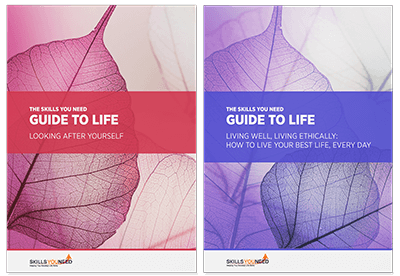Skills You Need to Understand
New Concepts and Broaden Your Mind
See also: Lifelong Learning
There are at least two kinds of essential knowledge people can have about any given topic — first-hand and second-hand knowledge. It’s crucial to understand how these two kinds of knowledge complement each other, how they’re different, and how both types are integral to grasping a new idea or perspective.
When you experience something yourself, you can be said to have gained first-hand knowledge of that thing. It doesn’t mean you have a total understanding of it, but your lived experience has taught you something about it that you couldn’t quite learn any other way.
Have you ever had a loved one pass away? Hopefully not, because there’s no more painful experience! But if so, you can imagine the difference between reading about what it’s like when a loved one dies and experiencing the sadness for yourself.
Then there’s second-hand knowledge, which refers to reading or hearing about a concept from someone else. When you read about history from a book, that’s second-hand knowledge.
Information of this nature is vitally important too because nobody can experience everything themselves! The only way to learn about some things is through the account of other people.

Modern Discourse
What do these types of knowledge have to do with developing the skills to learn about new concepts or perspectives? A lot, actually!
There are all kinds of topics in today’s social and political discourse which would be better understood if more people were armed with understandings of both types of knowledge — racism, police brutality, depression, misogyny, and many more. Can you really know about these topics if you only have second-hand information about it? Whose second-hand account are you reading?
Historically, white males were over-represented in industries like publishing, news, and others. Of course, everyone should be able to have a voice, but that’s just it — when one section of the population is disproportionately represented, it drowns out other voices.
If you are genuinely trying to understand political or social views different from your own, good for you! It’s a commendable thing to do. But the willingness to try is not the same thing as actually doing it successfully.
To ensure you are getting reliable and comprehensive information, get a broad mix of first-hand and second-hand information from different sources.
The Silo
It’s important to ask yourself, are you in a “silo”? A “silo” is the informal term given for people who are overwhelmingly exposed to only one side of an argument and maybe don’t realize or quite appreciate this asymmetry.
Suppose you are only hearing about major political topics from people who have no first-hand experience of the issues they’re describing and who don’t consult other people who have such experience. In that case, you might be getting too limited a viewpoint.
Escaping the silo means hearing from a broad cross-section of people with first-hand experience relevant second-hand information that meets journalistic or academic standards.
Talk Shows Can Help
Now, there are some things a person cannot experience themselves. For example, a man can’t know first-hand what it’s like to be a woman. A white person can’t know first-hand what it’s like to be Black. In other words, there are limitations to how much a person can experience first-hand.
You don’t necessarily need to have first-hand experience to have a broad understanding of many of today’s important political and social topics, but it helps. In the way you can’t know what it feels like to grieve unless you’ve done it before, you might be able to wrap your head around a concept, but you won’t know it the way someone who has lived it does.
If you have no first-hand experience of a particular topic yourself, you should seek out people who do. At some point, they need to get this type of information from someone who has experienced it themselves.
Celebrities like Jada Pinkett Smith host talk shows devoted to having difficult conversations about contentious topics. Her show, called Red Table Talk, is co-hosted with her daughter, Willow Smith, and her mother, Adrienne Banfield-Norris.
With three generations of Black women on the panel, such talk shows can expose people to arguments, perspectives, and opinions they may not have heard before.
Diverse representation matters because people from different races, classes, genders, and sexualities all have different perspectives. Historically, representation in public forums was limited to who had power, so many voices were excluded from the conversation. This exclusion is still going on today.
Ensuring that everybody’s voice is heard is the best way to get a comprehensive understanding of a new topic.
Understanding the Media
Reading is another crucial way to get a broad range of opinions encompassing a first- and second-hand perspective. Before you launch into the media world, take a moment to acquaint yourself with the kinds of articles out there.
An opinion piece can be valuable when a person can shine a light on an important topic by connecting it to their own first-hand experience. Opinion pieces are supposed to be a personal story, or at least a single person’s perspective.
Other articles are strictly reporting, and the writer sticks to the facts as impartially as they can. This type of article may conclude the same thing as an opinion piece, but it’ll arrive there by a different road.
For example, if a writer covers racism, they may write an opinion piece about how they were repeatedly carded by police in their own city. Another writer, or even the same one, may decide to write about the same topic, but by stitching together studies on carding from different cities over the years to see how trends have changed.
In other words, both first-hand and second-hand information are invaluable to a full understanding of a new topic.
In an age of misinformation, disinformation, and over-stimulation, it’s easy to understand why people are exhausted by the news and current events. Still, it’s essential to have the skills to understand the world around you. Categorizing and balancing the information you come across is an essential skill that will help you understand new concepts and broaden your mind.
Further Reading from Skills You Need
The Skills You Need Guide to Life
This two-part guide is an easy-to-read summary of the essential skills you need for a healthy mind and body.
The first eBook, Looking After Yourself, covers some of our most popular content and will help you to live a happier, healthier and more productive life.
The second eBook, Living Well, Living Ethically, considers how you can live your best life all the time. It helps you to answer the question: how can I avoid having too many regrets about my life?
About the Author
Matt Reed lives in Toronto, Canada. He is a freelance writer and editor, tech geek, and stay at home father.
Continue to:
Critical Thinking Skills
Effective Reading


